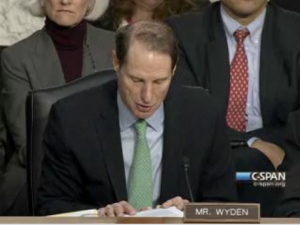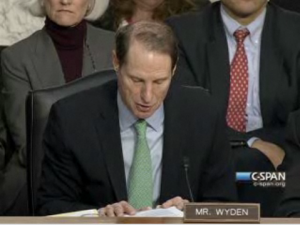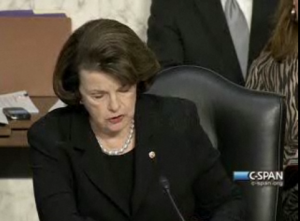What WAS Our Sentinel Drone Surveilling in Iran?
Kevin Drum captures where the state of the reporting on the story that the MEK, backed by Israel, is responsible for the assassinations of Iranian scientists and the implication that that makes Israel a state that sponsors terrorism. Drum writes,
Are the attacks on Iran terrorism? Of course they are. If they’re not, we might as well give up on even trying to define the word. But is it acceptable just because the other side is using it? Of course it’s —
But wait a second. Is it? For all practical purposes, Iran and Israel are at war; they’ve been at war for a long time; and both sides have tacitly agreed that it will primarily be a war carried out nonconventionally. The alternative is what we did in Afghanistan and Iraq: a full-scale conventional attack.
Is that a superior alternative? To say the least, I’m a little hard pressed to say it is. But the alternative is not to fight back at all. Given the current state of the art in human nature, that’s really not in the cards.
Still: is it terrorism? Yes. Do both sides use it? Yes. Is this, in many cases, the future of warfare? Probably yes.
The only question I’d raise is a chicken and an egg thing. Who attacked whom first? And if Hezbollah is your proxy to say that Iran did, then what was the 2006 invasion of Lebanon about?
Speaking of chickens and eggs, though, there’s something left out of this formulation. The US.
As I noted back in December, the reporting of David Sanger (whose beat seems to be precisely the intersection of US and Israeli covert ops) seems to suggest that our drones have been surveilling now-dead Iranian scientists.
So David Sanger, the (American and Israeli) intelligence community’s chief mouthpiece to boast about their latest victories against Iran, by-lined this story from Boston (rather than his home base of DC) to tell us the Sentinel drone was surveilling Iran’s suspected nuclear sites, using its isotope-sniffing powers.
In addition to video cameras, independent experts say the drone almost certainly carries communications intercept equipment and sensors that can detect tiny amounts of radioactive isotopes and other chemicals that can give away nuclear research.
But the real advantage of the Sentinel drone, Sanger and Shane tell us, is the ability to see who’s onsite when.
While an orbiting surveillance satellite can observe a location for only a few minutes at a time, a drone can loiter for hours, sending a video feed as people move about the site. Such a “pattern of life,” as it is called, can give crucial clues to the nature of the work being done, the equipment used and the size of the work force.
Actually, we knew that. Here’s the kind of information the Sentinel presumably gave us about Osama bin Laden’s compound.
Agents, determining that Kuwaiti was living there, used aerial surveillance to keep watch on the compound, which consisted of a three-story main house, a guesthouse, and a few outbuildings. They observed that residents of the compound burned their trash, instead of putting it out for collection, and concluded that the compound lacked a phone or an Internet connection. Kuwaiti and his brother came and went, but another man, living on the third floor, never left. When this third individual did venture outside, he stayed behind the compound’s walls. Some analysts speculated that the third man was bin Laden, and the agency dubbed him the Pacer.
In our assassination of Osama bin Laden, it seems, we used the Sentinel to learn the daily routine of everyone in the compound. Just the kind of information we’ve used to assassinate key Iranian scientists.



